Slovácká suita (1967)
Genre : Music, Documentary
Runtime : 0M
Director : Kuba Jureček
Writer : Jindřich Grepl, Richard Tománek
Synopsis
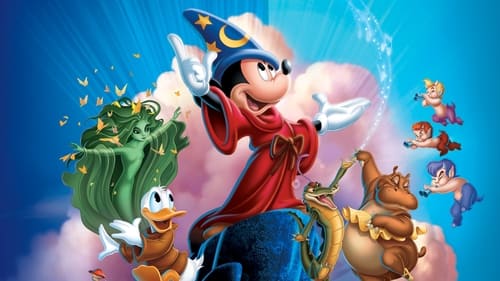
Blending lively music and brilliant animation, this sequel to the original 'Fantasia' restores 'The Sorcerer's Apprentice' and adds seven new shorts.
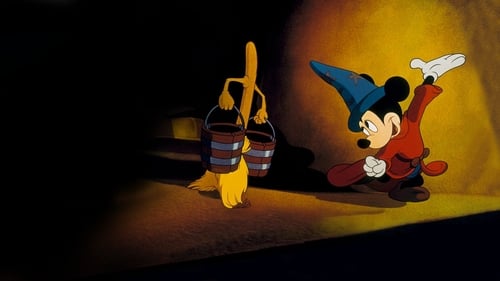
Walt Disney's timeless masterpiece is an extravaganza of sight and sound! See the music come to life, hear the pictures burst into song and experience the excitement that is Fantasia over and over again.

Violinist Sydney Wells was accidentally blinded by her sister Helen when she was five years old. She submits to a cornea transplantation, and while recovering from the operation, she realizes that she is seeing dead people.
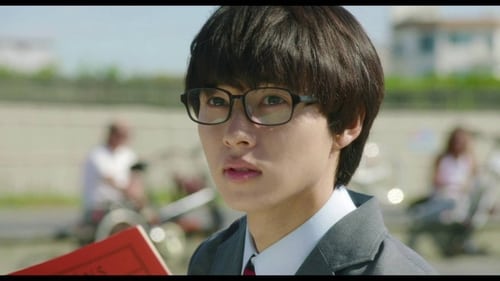
Arima Kousei won numerous piano competitions while under the strict watch of his mother. He was known as the human metronome during that time. Since the death of his mother, Kousei has been unable to hear the sound of his piano. He then meets Miyazono Kaori through childhood friend Sawabe Tsubaki. Kaori plays the violin and has a free sprit. Since meeting her, Kousei is able to face the piano again. Meanwhile, Kaori holds a secret.
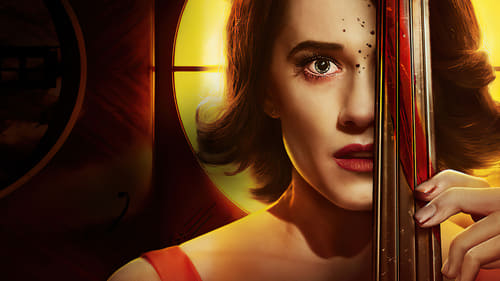
When troubled musical prodigy Charlotte seeks out Elizabeth, the new star pupil of her former school, the encounter sends both musicians down a sinister path with shocking consequences.

A fictionalised exploration of Beethoven's life in his final days working on his Ninth Symphony. It is 1824. Beethoven is racing to finish his new symphony. However, it has been years since his last success and he is plagued by deafness, loneliness and personal trauma. A copyist is urgently needed to help the composer. A fictional character is introduced in the form of a young conservatory student and aspiring composer named Anna Holtz. The mercurial Beethoven is skeptical that a woman might become involved in his masterpiece but slowly comes to trust in Anna's assistance and in the end becomes quite fond of her. By the time the piece is performed, her presence in his life is an absolute necessity. Her deep understanding of his work is such that she even corrects mistakes he has made, while her passionate personality opens a door into his private world.

The Parrs' baby Jack-Jack is thought to be normal, not having any super-powers like his parents or siblings. But when an outsider is hired to watch him, Jack-Jack shows his true potential.

Like his father, Tom is a real estate agent who makes his money from dirty, and sometimes brutal, deals. But a chance encounter prompts him to take up the piano and become a concert pianist. He auditions with the help of a beautiful, young virtuoso pianist who cannot speak French - music is their only exchange. But pressures from the ugly world of his day job soon become more than he can handle.
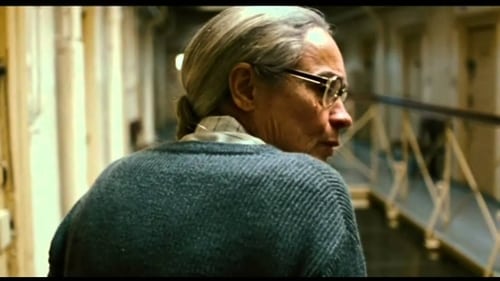
Jenny is young. Her life is over. She killed someone. And she would do it again. When an 80-year-old piano teacher discovers the girl’s secret, her brutality and her dreams, she decides to transform her pupil into the musical wunderkind she once was.
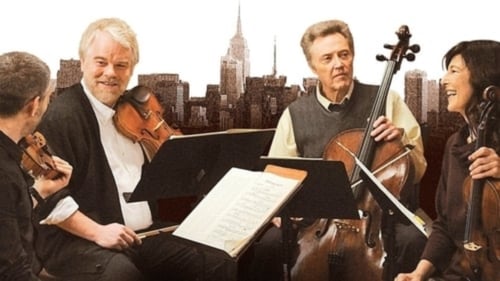
When the beloved cellist of a world-renowned string quartet is diagnosed with a life threatening illness, the group's future suddenly hangs in the balance as suppressed emotions, competing egos and uncontrollable passions threaten to derail years of friendship and collaboration. As they are about to play their 25th anniversary concert — quite possibly their last — only their intimate bond and the power of music can preserve their legacy.

Solange is depressed: she's stopped smiling, she eats little, she says less. She has fainting fits. Her husband Raoul seeks to save her by enlisting Stephane, a stranger, to be her lover. Although he listens to Mozart and has every Pocket Book arranged in alphabetical order, Stephane fails to cheer Solange. She knits. She does housework. Everyone, including their neighbor a vegetable vendor, agrees that she needs a child, yet she fails to get pregnant by either lover. The three take a job running a kids' summer camp where they meet Christian, the precocious 13-year-old son of the local factory manager. It is Christian who restores Solange to laughter

1779. Eight-year-old Ludwig van Beethoven, called "Louis", is already known as a musical prodigy. He learns to go his own way - much to the dismay of the people around him. Some years later, he meets Mozart during times of political upheaval. The unconventional genius and French Revolution are sparking a fire in Louis' heart; he doesn't want to serve a master - only the arts. Facing times of family tragedies and unrequited love, he almost gives up. However, Louis makes it to Vienna to study under Haydn in 1792, and the rest is history. Who was this man, whose music has since touched countless hearts and minds? At the end of his life, the master is isolated by loss of loved ones and hearing. Surely though, he was way ahead of his times.
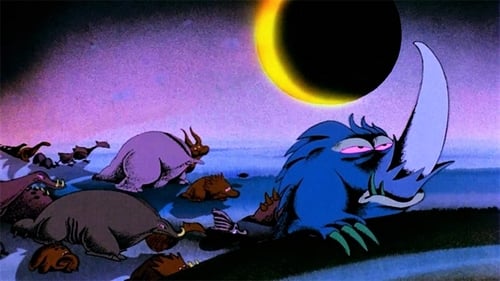
The film is a parody of Disney's Fantasia, though possibly more of a challenge to Fantasia than parody status would imply. In the context of this film, "Allegro non Troppo" means Not So Fast!, an interjection meaning "slow down" or "think before you act" and refers to the film's pessimistic view of Western progress (as opposed to the optimism of Disney's original).

Kumiko is now a second year and one of the senior players of the euphonium section. With new underclassmen joining the concert band, Kumiko will have to learn new things in order to deal with awkward and difficult underclassmen. She and third-year trumpeter Tomoe Kabe have been chosen to lead the new underclassmen members. Among the new members to Kumiko's bass section are euphonist Kanade Hisaishi, whose appearances are deceiving; tuba player Mirei Suzuki, who cannot adapt to her new environment; tuba player Satsuki Suzuki, who wants to get along with Mirei; and double bassist Motomu Tsukinaga, who cannot talk about himself. Between the Sunrise Festival, chair placement auditions, and the competition, a number of problems quickly begin to arise.
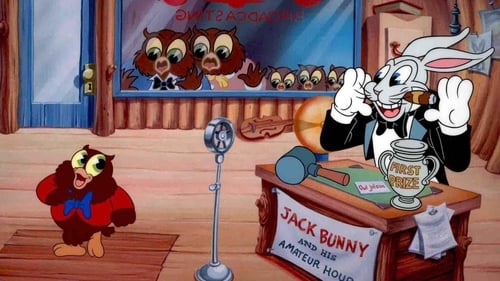
I Love to Singa depicts the story of a young owl who wants to sing jazz, instead of the classical music that his German parents wish him to perform. The plot is a lighthearted tribute to Al Jolson's film The Jazz Singer.
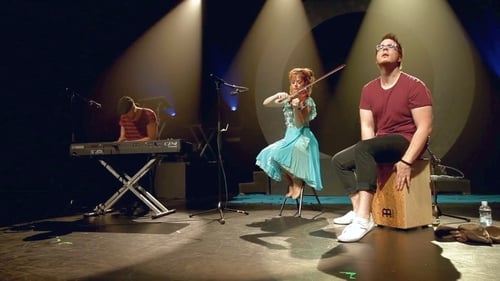
Lindsey Stirling brings her futurist world of electronic big beats fused with violin, dance, and animation to London s Forum Theatre. Filmed live during her Shatter Me World Tour, the 90 minute live show features her smash single Shatter Me along with several other tracks from her sophomore album which debuted at #2 on Billboard s Top 200 album chart.
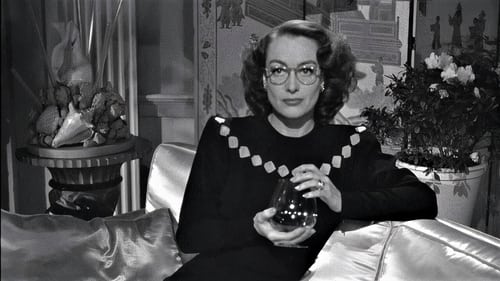
A classical musician from a working class background is sidetracked by his love for a wealthy, neurotic socialite.

Beginning on the eve of her thirtieth birthday, “Brave Enough,” documents violinist Lindsey Stirling over the past year as she comes to terms with the most challenging & traumatic events of her life. Through her art, she seeks to share a message of hope and courage and yet she must ask herself the question, “Am I Brave Enough?” Capturing her personal obstacles and breakthrough moments during the “Brave Enough,” tour, the film presents an intimate look at this one-of- a-kind artist and her spectacular live performances inspired by real-life heartbreak, joy, and love.
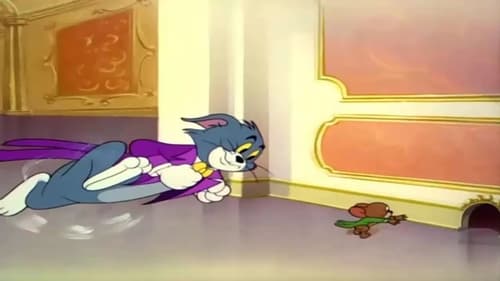
At the home of Viennese composer Johann Strauss lived Johann Mouse. Whenever the composer played his waltzes, the mouse would dance to the music, unable to control himself. One day, when Strauss was away, the house cat played his master's music. When word got out about a piano-playing cat and a dancing mouse, they were commanded to perform for the emperor.

A Corny Concerto is an American animated cartoon short produced by Leon Schlesinger Productions and distributed by Warner Bros. It was directed by Bob Clampett, written by Frank Tashlin, animated by Robert McKimson and released as part of the Merrie Melodies series on September 25, 1943. A parody of Disney's 1940 feature Fantasia, the film uses two of Johann Strauss' best known waltzes, Tales from the Vienna Woods and The Blue Danube, adapted by the cartoon unit's music director, Carl Stalling and orchestrated by its arranger and later, Stalling's successor, Milt Franklyn. Long considered a classic for its sly humor and impeccable timing with the music, it was voted #47 of the 50 Greatest Cartoons of all time by members of the animation field in 1994



















